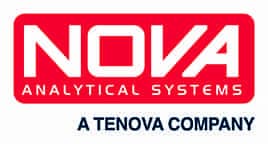For more than 30 years, we have been a leading designer and manufacturer of reliable gas analysis equipment.
Nova’s gas analyzers are renowned for their durability, ease of use and installation, reliability, and effective data creation and communication. Gas analysis is imperative in a wide range of industries in terms of each the efficient running of your processes, the quality of your products, and the safety of your employees.
More important than having a gas analyzer in your facility is making sure you have the right gas analyzer.

Variances in Analyzers
Industries such as steelmaking, petrochemical, synthetic and biofuel production, incineration, waste management, and power generation, among others, all have need of gas analyzers. What’s more, each industry has different gas monitoring needs. Even within a single industry, different processes or facilities can require different gas analyses.
Over time, to keep up with the constantly expanding and evolving industrial word, we have developed an expansive line of gas analyzers. Many of them are industry specific, and selecting the correct one for your application can be a daunting task.
Today, we manufacture hundreds of individual gas analyzers.
Checkout Our Ebook Library
View Ebooks
Analyzer Selection Factors
With such a large volume of different gas analyzers to choose from, it can be difficult to know where to start looking.
Luckily, there are a number of factors that should always be considered when selecting a gas analyzer. Working through these factors can lead you to a small handful of analyzers that could fit your application.
Gas to be Measured
The primary gas that you need to measure should, naturally, be the first factor of your decision. Different gases often require different configurations or sensors in an analyzer — attempting to measure a gas with an analyzer meant for another could lead to catastrophic consequences, making this the most important factor. Some commonly measured gasses, and some industries they’re used in, include:
- Oxygen (O2) — metalworking, steelmaking, medical, aerospace, water treatment, etc
- Carbon Monoxide (CO) and Carbon Dioxide (CO2) — industries that burn fossil fuels or use electric arc furnaces
- Hydrogen (H2) — metalworking, metal heat treating, gasification
Other Materials
It is unlikely that the primarily measured gas is the only thing in the atmosphere where your gas analyzer will be located. What else is in the air? Particulate matter, moisture, and even run of the mill dust can affect the readings a gas analyzer obtains or even, potentially, damage sensors.
If you know that the operating atmosphere is likely to have contaminants of any source, you should skew your search toward Nova gas analyzers with filtering or reading correction capabilities.
Learn More
To learn more about these factors for selecting the proper gas analyzer, as well as some additional factors that you should consider, download our most recent eBook — “How to Choose a Gas Analyzer That is Right for You” is available for free.


